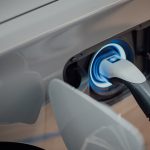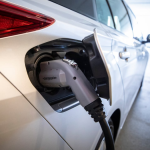The Zero Emission Vehicle Awareness Initiative (ZEVAI) of Natural Resources Canada provides funding for initiatives that raise public understanding, confidence, and awareness of zero-emission cars (ZEV) and public charging and refuelling infrastructure. The ZEVAI contributes to funding outreach, education, and capacity-building initiatives, ultimately facilitating a larger uptake of ZEVs by Canadians across the nation.
ZEVs, which include entirely battery-electric, plug-in hybrid, and hydrogen fuel cell electric vehicles, do not emit polluting emissions. Canadians are unsure how ZEVs function because they are “fueled” and maintained differently than conventional vehicles. They require evidence that a ZEV can deliver a comparable or superior driving experience and value to a traditional internal combustion engine vehicle.
According to numerous national studies, the public’s lack of information, awareness, and confidence is a major impediment to the widespread adoption of ZEVs. To help Canadians through the decision-making process for acquiring a ZEV, it is crucial to address gaps in ZEV information and expertise for consumers and enterprises.
The Zero Emission Vehicles Awareness Initiative (ZEVAI) seeks to provide funding for fresh and cutting-edge initiatives that will help Canadians fill in their country’s knowledge and awareness gaps regarding light-duty ZEVs and ZEV technologies, such as battery electric (BEV), plug-in hybrid (PHEV), and hydrogen fuel cell electric vehicles. Additionally, this stream’s battery-powered micro-mobility options are welcome (i.e., small, lightweight vehicles operating at low speeds, including scooters, e-bikes, and cargo e-bikes). Medium- and heavy-duty vehicle requests will be made separately later.
Background
The Canadian government published an emissions reduction strategy in 2022: Canada’s Next Steps for Clean Air and a Strong Economy: The 2030 Emissions Reduction Plan. The government reaffirmed its dedication to battling climate change, fostering job growth, and ensuring Canadians lead the world in the transition to sustainable technology and sectors.
The strategy takes a sector-by-sector approach and is both ambitious and doable. It will put us on track to meet our objective of having net-zero emissions by 2050 and help the government meet its new climate target of reducing emissions by 40% below 2005 levels by 2030.
About 20% of all greenhouse gas emissions in Canada come from on-road traffic. Reduced transportation emissions are consistent with the global transition toward ZEVs and are essential to meeting the government’s more aggressive climate change targets.
The Government has established an obligatory goal for all new light-duty automobile and passenger truck sales to be ZEVs by 2035 to satisfy that urgent demand. Based on feasibility, the Government will also create a medium- and heavy-duty vehicle (MHDV) rule that will mandate that all sales of MHDVs for a specific subset of vehicle types be ZEVs by 2040.
The government is investing an additional $3 billion to ensure that Canada meets these objectives. The Government will seek a combination of investments and legislation to assist Canadians and industry in this transition to provide certainty about the route to getting there.
How to Apply?
The application period for this Call for Proposal (CFP) has ended. Please submit your proposal and accompanying materials by August 18, 2022, at 23:59 (Eastern Daylight Time), for projects that must be finished by March 31, 2024, to be considered for financing.
Review the Applicant Guide and Complete Your Proposal
Required documentation for your submission includes:
• Application Form
• Project Activities and Timeline (Excel)
• Budget Overview (Excel)
• Attestation for affiliations to countries/persons under economic sanctions
• Supporting documentation
• An attestation dated and signed by a duly authorized officer
An attestation signed and dated by a validly appointed officer of the applicant organization must be included with the application. The application will be deemed incomplete and won’t be given further consideration if the attestation page is missing. Section 7 of the applicant guide and the application form both contain the attestation page.
Submit Your Resume
Applicants may submit a complete application package by utilizing the online application system (Integro) accessible through the ZEVAI website. Although Integro electronic submissions are preferred, application packages may be delivered via email or courier/registered mail in physical copy. Only submissions with fully completed application sections will be taken into consideration.
Within 100 days after the CFP closing date, NRCan will evaluate all submitted proposals, after which it will notify all applicants of its decision.
To fill out an online application:
Integro, NRCan’s secure online application platform, is now recommended for all ZEVAI applicants to use when submitting proposals. To access the Integro platform via NRCan’seServices Portal, click here.
What is the Type of Eligible Projects Under This Program?
To raise public awareness or educate the public about zero-emission light duty and micro-mobility solutions, including BEV, PHEV, hydrogen fuel cell vehicles, and related infrastructure, NRCan will fund new and cutting-edge ZEV awareness and education initiatives that will take place in Canada.
The proposed projects may comprise, but are not restricted to:
- Creating and executing innovative outreach and awareness programmes with a specific audience
- Establishing new websites or information gateways
- Exhibiting vehicles and highlighting the potential of ZEVs through initiatives like ambassador or mentorship programmes, mobile showcases, test drives, and demonstrations, especially in impoverished areas.
- Implementing measures to spread awareness of EV charging infrastructure, technologies, and micro-mobility solutions.
- Taking steps to enhance employee knowledge about workplace charging across numerous firms, increasing awareness among potential end users, such as commercial fleets, of EV charging options and technology
- Creating instructional resources, training programs, best practices manuals, and curricula for specific target audiences or all Canadians
Check out more information about Zero Emission Vehicle Infrastructure Program (ZEVIP)







Leave a Reply